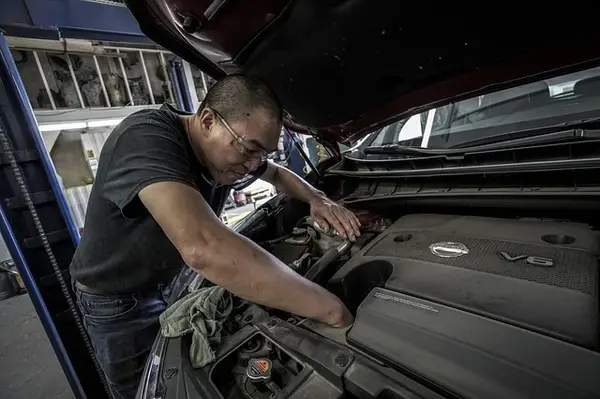The Approved Custom Duty On Cars In Nigeria

The approved customs duty on cars in Nigeria is essential for car importers to understand, as it influences the total cost of bringing vehicles into the country. In 2024, the duty calculation framework follows Nigeria's policy for revenue generation, consumer protection, and controlling the inflow of vehicles. Here’s a breakdown of the customs duty process and costs involved:
Overview of Nigerian Customs Duty on Vehicles
Customs duty rates in Nigeria are influenced by factors such as the vehicle's age, make, model, engine size, and the current dollar exchange rate. Generally, vehicles less than 15 years old are allowed, and duty rates are calculated as a percentage of the vehicle's total value, which is based on CIF (Cost, Insurance, and Freight) valuation.
-
Duty Percentage: Typically, the duty on most standard cars is around 35% of the CIF value, with additional taxes such as the VAT at 7.5% and a surcharge that can bring the total to approximately 40-45% of the vehicle's value.
-
CIF Valuation: Customs use the CIF value to determine the duty. This value considers the cost of the car, insurance, and freight expenses from the origin country to Nigeria. Freight rates from countries like the USA can range from $1,000 to $2,000 per vehicle, depending on shipping methods and vehicle dimensions.
-
Age-Based Tariffs: Newer vehicles may have slightly lower duties, while older vehicles can attract higher fees to discourage the import of older cars, which may contribute to environmental concerns.
Additional Fees and Taxes
Besides the customs duty, there are several other charges applied to imported vehicles:
-
Value Added Tax (VAT): Currently set at 7.5% of the total value after customs duty.
-
ECOWAS Levy: A 0.5% charge for cars imported from non-ECOWAS countries.
-
Surcharges and Port Charges: Various fees including handling charges, port charges, and sometimes an additional levy depending on the vehicle’s specifications and shipping method.
Sample Clearing Costs by Vehicle Type and Model Year
The exact cost of clearing cars in Nigeria can vary. Here are some estimates for popular models, based on updated CIF values and clearing rates:
-
Toyota Camry (2015): Approximate clearing cost is between ₦700,000 to ₦1.2 million, depending on specifications and CIF valuation.
-
Honda Accord (2018): Around ₦1.1 million to ₦1.6 million.
-
Mercedes-Benz C300 (2017): Typically costs between ₦1.5 million and ₦2 million to clear.
For luxury cars and SUVs like the Range Rover, Lexus LX, or BMW X5, clearing costs are significantly higher. For instance, a Lexus LX570 (2018 model) can incur clearing costs upwards of ₦2.5 million.
How Customs Duty is Calculated
To calculate customs duty on a vehicle:
-
Determine the CIF Value: Calculate or obtain the vehicle’s CIF value, which includes its price, insurance, and shipping costs.
-
Apply Duty Rate: Multiply the CIF value by the duty rate (35% for most vehicles).
-
Calculate VAT and Other Taxes: Add VAT (7.5%) and other applicable levies, such as the ECOWAS levy if the vehicle is from a non-ECOWAS country.
-
Include Port and Handling Fees: Lastly, add any port or handling fees.
For example, a Toyota Corolla with a CIF value of $10,000 would have a duty of $3,500 (35%), VAT of 7.5% on the total, and additional fees, which could bring the clearing cost to around ₦1 million or more.
Importance of Exchange Rates
The exchange rate plays a significant role in determining final clearing costs. Because the customs duty is based on dollar valuation, fluctuations in the dollar-naira rate can significantly impact the amount payable in naira. An increase in the dollar rate means higher clearing costs for importers.
Role of Clearing Agents
Hiring a clearing agent is often advisable, as they handle the logistics, paperwork, and negotiations with customs officials, ensuring a smoother clearance process. Clearing agents also help in obtaining accurate CIF values and navigating any changes in policy or exchange rates. However, they charge fees for their services, which add to the total cost but provide convenience and reduce the risk of unexpected costs.
Recent Updates and Potential Changes in Policy
The Nigerian government frequently revises import duties, often adjusting them to address revenue needs and regulate vehicle imports. Recent years have seen increased duties on older cars and certain luxury vehicles. Importers should stay updated with customs policies and consider using licensed clearing agents to avoid surprises or delays in the clearance process.
Conclusion
The approved customs duty on cars in Nigeria in 2024 is calculated using the CIF model, with additional taxes such as VAT and ECOWAS levies. Staying updated with exchange rates, understanding CIF valuation, and possibly hiring a clearing agent can help importers better manage these costs.






